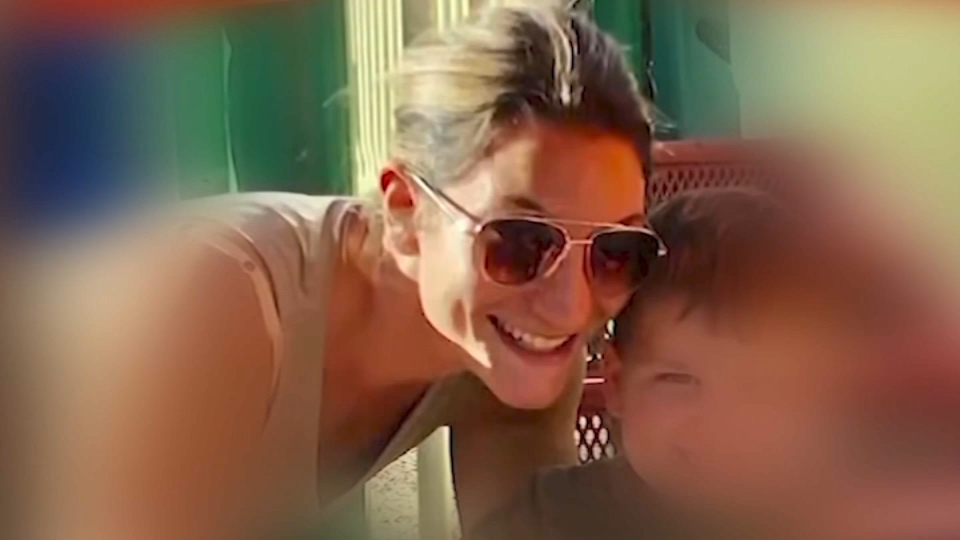
The alleged murder of three young children by a Duxbury mother experiencing postpartum depression and potentially postpartum psychosis has sparked "huge momentum" on Beacon Hill to pass legislation protecting defendants who commit crimes due to their mood disorders, according to the Senate sponsor of a newly refiled proposal.
Petitions from Rep. Jim O'Day and Sen. Joan Lovely (HD 4280 / SD 2597) would provide a path for new mothers who seriously harm or kill their babies, among other crimes, to receive treatment after they've been found incompetent to stand trial or not guilty by reason of mental illness.
WATCH ANYTIME FOR FREE
Stream NBC10 Boston news for free, 24/7, wherever you are. |
The two lawmakers are the former co-chairs of the Ellen Story Commission on Postpartum Depression — composed of elected officials, mental health and health care providers, insurance representatives and other stakeholders — that advocates for maternal health issues.
"Postpartum depression is the number-one complication in pregnancy, and we know it manifests as very mild symptoms to full psychosis, where the birthing individual will either take their own life or their life and the life of their child or children," Lovely said, calling the conditions fully treatable. "These birthing people deserve protection."
Get updates on what's happening in Boston to your inbox. Sign up for our News Headlines newsletter.
The Salem Democrat said she believes the protections outlined in her proposed legislation should apply to Lindsay Clancy, a labor and delivery nurse accused of strangling her children to death in January when her husband briefly left their Duxbury home to get a prescription and takeout. An attorney for Clancy — who in February pleaded not guilty to two counts of murder, three counts of strangulation, and three counts of assault and battery with a dangerous weapon — has said she was improperly medicated and grappling with postpartum depression or psychosis.
"It's horribly tragic, so the momentum's there," Lovely said of her proposal. "We look forward to a full hearing with experts, with members of the (Ellen Story) Commission (on Postpartum Depression), so that we can educate our colleagues and see if we can get the bill to the governor's desk this session."
More on postpartum depression and psychosis
About one in eight women experience symptoms of postpartum depression, according to the Centers for Disease Control and Prevention.
Postpartum psychosis is far rarer, occurring in one to two out of every 1,000 births, according to Postpartum Support International. Still, that could translate into about 140 Massachusetts women experiencing the condition each year, O'Day's office said.
Under the proposals before the Joint Committee on the Judiciary, perinatal psychiatric complications would be considered mitigating factors in cases that could lead to a life sentence without parole.
The bills, which explicitly define postpartum psychosis and postpartum depression, would require defendants facing criminal charges within one year of giving birth to be screened for perinatal psychiatric complications. For proceedings involving murder, serious bodily harm, or the threat of serious harm, people would need to be confined to a state hospital or treatment facility for at least 180 days before becoming eligible for outpatient care.
Individuals charged for past crimes while experiencing illnesses like postpartum psychosis may become eligible for resentencing under the legislation.
Unlike his Senate counterpart, O'Day said he's unsure whether the latest iteration of the bill, which has been sent to study in the past two legislative sessions, is a "winner or not."
"I think it's a really good starting place for us to have a serious, serious, serious discussion about how we treat these kinds of cases," O'Day, a West Boylston Democrat, said. "I think that there will be strong support from the medical community — and that will hopefully shape how the committee views this bill — and there will be a lot of discussion being brought forward by the district attorneys who may see differently."
There's been no vocal opposition from district attorneys or constituents to Lovely's new and past proposals, an aide to the senator said. But Lovely welcomes feedback on the issue, the aide said.
O'Day said the new proposals place a larger emphasis on prevention and education.
The Department of Public Health, for example, would need to create and maintain a digital resource center on perinatal mood and anxiety disorders after consulting with gynecologists, pediatricians, primary care providers, midwives, psychiatrists and mental health clinicians, among others. Health care providers and organizations would then need to provide information to perinatal individuals and families about how to access that resource, or give hard copies if needed.
"Prevention is really the key to all of this," O'Day said. "It's supposed to be this really exciting, wonderful, great time of someone's life giving birth, and we hope that no one would have any sort of complications — but as we know, people do and it happens way too regularly. The better job we do up front, the fewer cases, hopefully, we're ever going to have to worry about."
Lovely submitted her petition in early May, months after January's initial filing deadline and the Duxbury tragedy. O'Day filed his in April.
Lawmakers said the additional time helped them consult with more experts to fine-tune language, and Lovely said multiple colleagues were "very interested" in the filing status. Lovely said she intends to urge Sen. Jamie Eldridge, co-chair of the Joint Committee on the Judiciary, to hold a hearing on the legislation "sooner than later."



